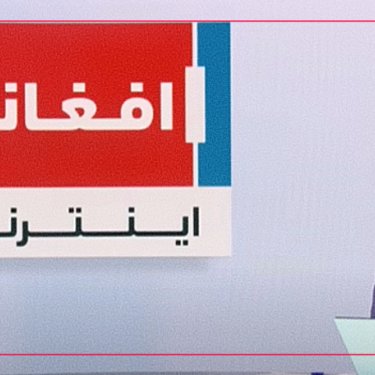Afghanistan: Taliban prohibit journalists from collaborating with Afghanistan International news channel

Reporters Without Borders (RSF) calls on the Taliban Ministry of Information and Culture to rescind a ban on Afghan journalists working for the London-based TV news channel Afghanistan International, in the latest in a series of restrictions on press freedom. Screening the TV channel’s broadcasts in public places has also been banned.
The ban on any former of participation or collaboration by Afghan journalists or analysts with Afghanistan International, the most popular international TV channel in Afghanistan, was issued on 8 May by the Media Complaints and Rights Violations Commission, which is nowadays controlled by the Ministry of Information and Culture.
It follows the closure of two local privately-owned TV channels – Noor TV and Barya TV – by the commission last month.
The Taliban authorities have also prohibited any screening of Afghanistan International’s broadcasts in public places, such as restaurants. Broadcast by satellite from London, this 24-hour TV news channel is accessible by cable and on social media.
“The Taliban are conducting a relentless crackdown on media freedom with the aim of controlling their image by censoring all critical reporting. Several journalists have been targeted and arbitrarily detained in recent months on charges of collaborating with foreign and exile media. The restriction on Afghanistan International is the result of an official order revealing the government’s strategy of stifling all independent voices. We urge the Minister of Information and Culture to ensure that journalists and contributors to foreign and exile media are able to work freely and safely, and that Afghanistan International can be broadcast within Afghanistan without any restrictions.
Announcing the ban on collaborating with Afghanistan International, Taliban information and culture ministry spokesman Khubaib Ghufran said it had “violated professional standards and crossed moral and legal boundaries” and cited 10 reasons, including its alleged campaigning against the Taliban government.
“Among other things, we are accused of falsifying facts and spreading disinformation and yet we base our work on fact-based journalism, which relies on a robust verification process,” Afghanistan International director Harun Najafizada told RSF.
The ban may have been prompted by recent Afghan International reporting thought to have annoyed the Taliban government, including its coverage of anti-Taliban protests in the northeastern province of Badakhshan that were dispersed bloodily, and its revelations about the use of torture against political prisoners in Kabul’s Pul-e-Charkhi prison.
Noting that Ghufran, the ministry spokesman, said that any form of collaboration with Afghanistan International would be regarded as a criminal act, Najafizada added: “The Taliban did not specify what the sanctions would be. We remain concerned. This is a decision that goes against press freedom and the country's media laws.”
The grounds given for closing Noor TV and Barya TV on 16 April was their alleged violation of “national and Islamic values.”
